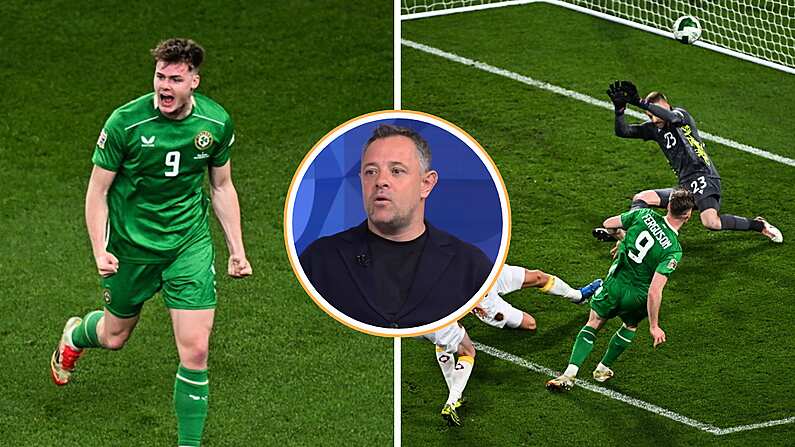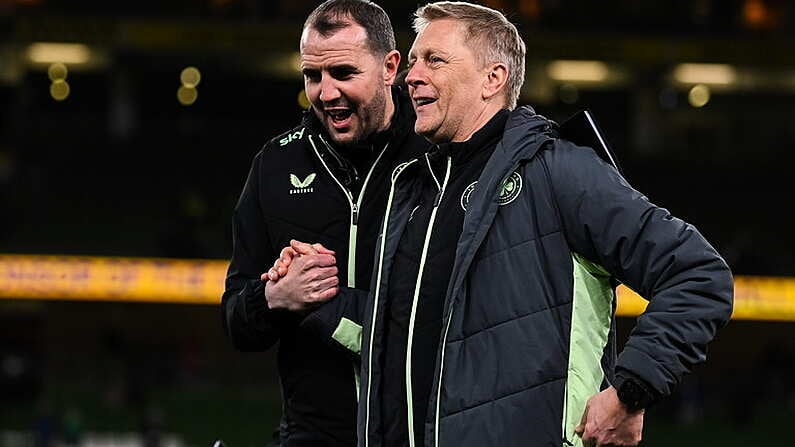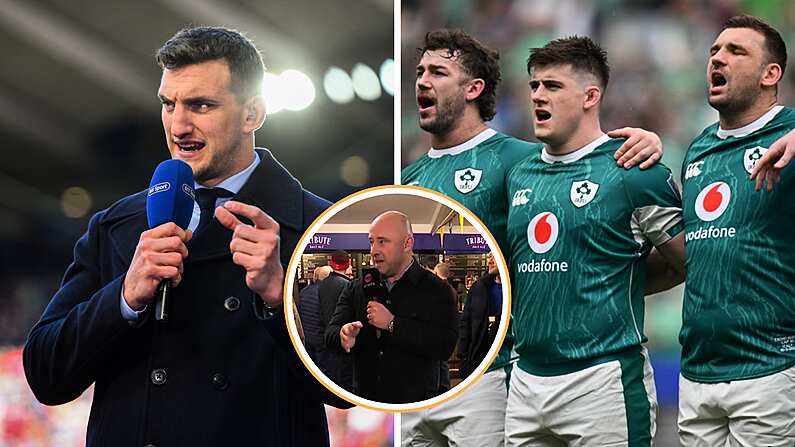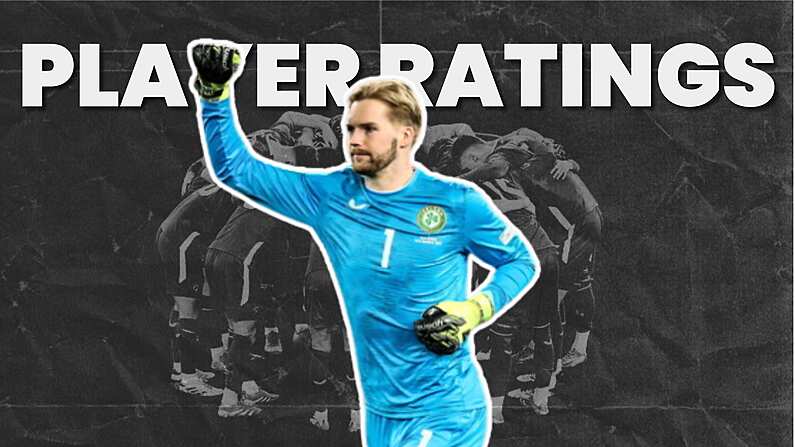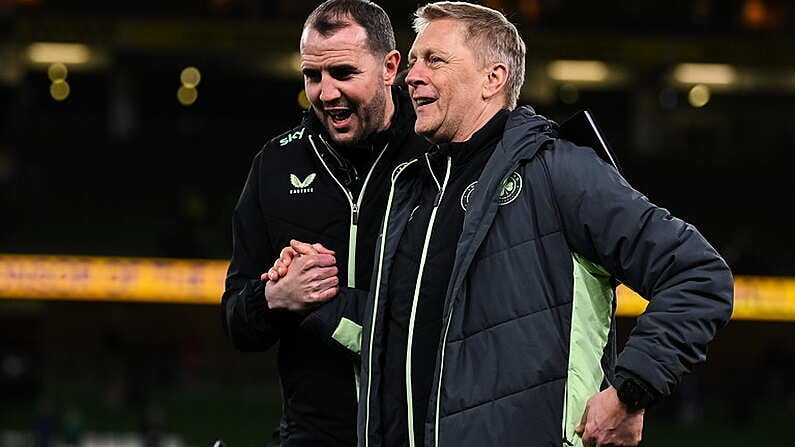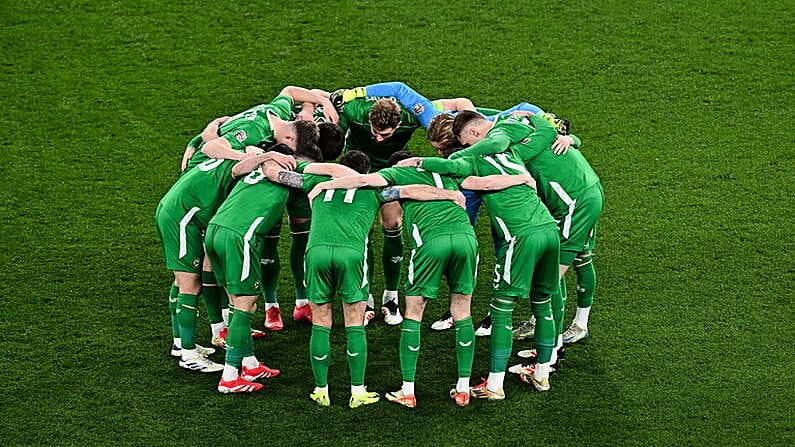I am capitalising on every single opportunity. It’s a strong word, one of my favourite words: capitalise. I’m ready to capitalise on everything.
Conor McGregor has made his career by jumping on every possible opportunity, so it is unsurprising that he told Donald McRae that his favourite word is 'capitalise'. McGregor's story is one of a man grabbing opportunities and clutching them in a chokehold. He quit life as a plumber to dedicate himself to mixed martial arts. In the span of just four years, he has become a global superstar and the face of his sport.
After beating Jose Aldo in such spectacular fashion, McGregor has now assumed a place of almost unique power within his sport. Many have written about his qualities as a superstar and a phenomenon. Yet, if McGregor wants to be remembered as a truly transformative athlete, like Muhammad Ali (to whom he is sometimes compared) he must speak up about the conditions of his fellow fighters in the UFC. With Aldo beaten, McGregor says he can do what he wants and write his own rules. It is time he spoke up for his fellow fighters.
The difficult working conditions for a fighter in the Ultimate Fighting Championship are well-documented but that does not mean they are not worth explaining again.
The UFC is a private company, and thus are not compelled to disclose its revenues. This makes it difficult to deduce what portion of the company's profits are paid to the fighters. Lorenzo Fertitta, the chief executive of ZUFFA, the UFC's parent company, claims that this percentage is "not far off what the other sports leagues pay as a percentage of revenue". The NFL, NBA and MLB give their athletes around 50% of profits. Rob Maysey, an Arizona-based attorney who established the Mixed Martial Arts Fighters Association, told ESPN that he estimates the number to be much closer to five percent. Regardless of the exact figures, it is clear many fighters believe that they are not adequately reimbursed by the UFC.
Mike Tyson, of all people, told the MMA Hour in 2012 that UFC fighters need to "get the money they fucking deserve".
Michael McDonald knocked out Miguel Torres - a former champion - in 2012. He revealed in an ESPN interview that he was paid an $8,000 appearance fee along with an $8,000 win bonus. Torres was paid twice as much in defeat. "You feel underappreciated and cheated. You don't want to go out and fight the best fighters in the world, then go home and wonder if you can pay your bills. You start to say, 'Something's not right now. I'm angry". With fighters unlikely to fight more than twice a year, financial issues loom for many. Aljamain Sterling, a bantamweight fighter, posted on his facebook page in September that financial concerns may force him to quit MMA, writing that " if you aren’t at the top of the game in your division, count your blessings if you’re able to retire with any money, and with your body and brain intact". According to some reports, those further down the UFC food chain earn an average of $24,500 a year, with entry level fighters earning as little as $6,000 if they fail to win their first fight. A 2013 story claimed that the salary of the worst-paid players in the WNBA are double that of the average MMA fighters.
Bleacher Report spoke to a Northwestern University labour lawyer, Zev Eigen, who claims that the contracts these fighters must sign with the UFC are the worst he's seen in the sports and entertainment fields: "None of these fighters are represented by a professional association or union. There's nothing that sets a minimum or basic standard below which the company can't go".
These contracts are usually kept secret, but in 2013 the contract of Eddie Alvarez was made public amid a wrangle between he, the UFC and a rival company, Bellator. The entire contract can be read here. Some of the clauses revealed in it were extraordinary:
ARTICLE II: GRANT OF ANCILLARY RIGHTS
Fighter hereby grants to ZUFFA the exclusive worldwide right to use, display, disseminate, edit, reproduce, print, publish and make any other use of the name, sobriquet, image, likeness, voice, persona, signature, and biographical material of Fighter and all persons associated with Fighter (collectively, the "Identity"), in any medium in connection with advertising, marketing, exploiting and promoting the UFC brand and each Bout and the exploitation of all rights pertaining thereto as provided herein and all rights to each Bout electronic and other (the "Ancillary Rights" and, collectively with the Promotional Rights, the "Rights").
If a fighter wishes to join the UFC, they must allow the company the right to use any and all aspects of their identity for promotional circumstances. This extends even to tattoos: the company have the right to use a fighter's tattoos for promotional purposes.
The UFC also control "all media", be it video, audio, radio, television, online, video games etc. This gives the UFC control of what are termed 'secondary' markets, like marketing deals with sportswear companies and video games. Whereas the likes of Cristiano Ronaldo can hold a money-spinning sponsorship deal with Nike while playing at a club sponsored by Adidas, this right is denied to UFC fighters, they get a cut of the UFC sponsorship deal with Reebok. According to the Bleacher Report story, even the belts won by champions must be returned to the company after a couple of days, at the fighter's expense, as of 2013.
The most surprising clause is included under the instances that can lead to the termination of the contract. The article states that termination is possible should the fighter violate terms of the contract and also in the event that the "fighter is not declared the winner of any mixed martial arts bout (whether promoted by ZUFFA or not) by the Athletic Commission or official authority having jurisdiction over the bout".
This essentially means that a fighter's contract can be terminated if he/she doesn't win. UFC's chief 0perating 0fficer Lawrence Epstein explains the policy in reference to boxing: "In the boxing industry, these cut provisions have always been in agreements because a fighter's market value can change dramatically in the event of a loss. Look at our history, we're not in the business of cutting fighters". The company have in fact cut more than a dozen fighters this alone (including Ireland's Paul Redmond).
The fighters are utterly at the mercy of the company. Those who are as successful as McGregor will thrive, but for those who fail to succeed early in their careers, there is no safety net in the form of a fighters' union. One of the main stumbling blocks to the forming of a union is contained in Article 22 of Alvarez' Contract:
Fighter shall not disclose to any third party (other than his agents and professional advisers, in their capacity as such, on a need-to-know basis), any information with respect to the terms and provisions of this Agreement or any Bout Agreement.
Fighters are not allowed, by the terms of their contract, to disclose their pay. This, as Eigen points out, makes the formation of a union impossible: "the employee has to keep confidential how much he's making. That's a complete violation of the National Labor Relations Act. Imagine if a union came out to organize these fighters. To do that they'd need to know how much they were getting paid".
Change will have to come from the top. If there is a fighter whose standing in the sport is strong enough to affect change in this regard, it is McGregor.
McGregor’s statement on Facebook after the win over Aldo featured special praise for the ‘company’. “It is an honor to be playing a part in this great companies [sic] continued growth and success and an honor to top off a phenomenal week in the sports history.” McGregor sounds very much like a company man in this statement.
The UFC has turned McGregor into a global superstar. If he wants, McGregor can turn the UFC into an organisation that properly looks after its own athletes. His legacy as a ‘sports icon’ will be decided, in large part, on how he addresses this issue.
Should he remain silent, it would appear that McGregor's second favourite word is "capitalism".
See Also: Dublin City Councillors Have Their Say On Conor McGregor Homecoming Proposal
See Also: Conor McGregor Handed Potential Six Month Suspension After UFC 194 Injury


